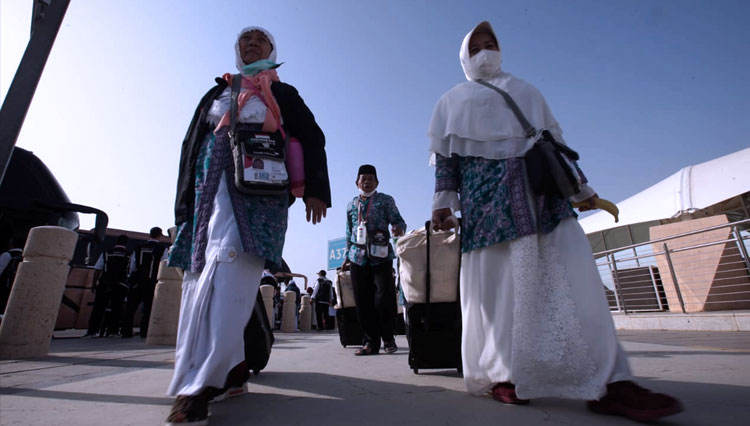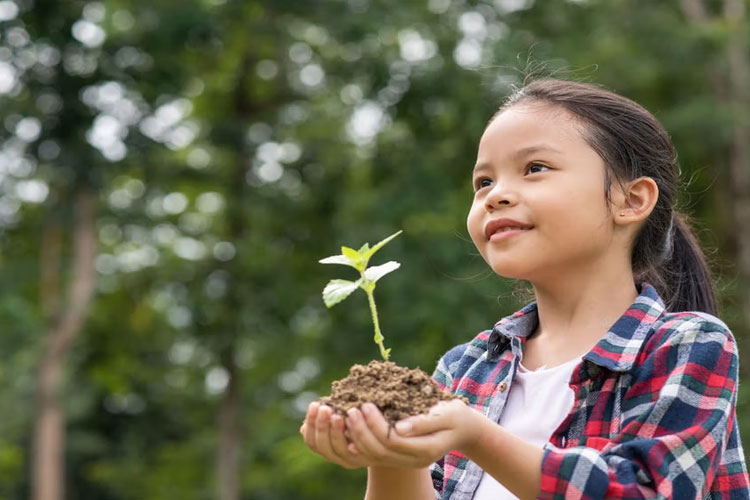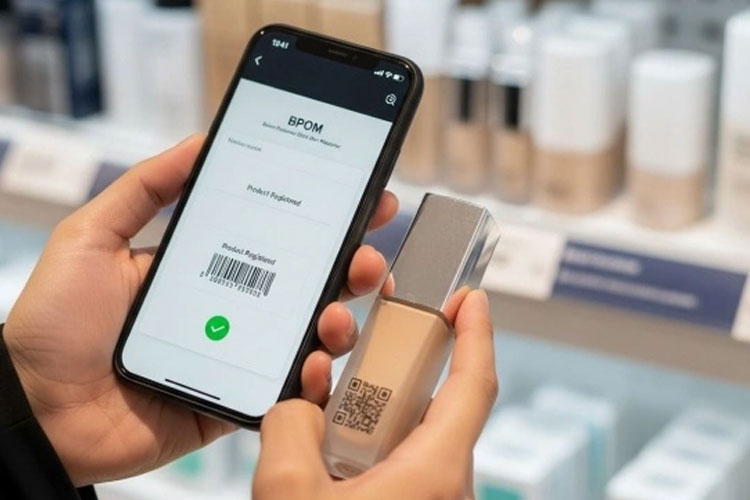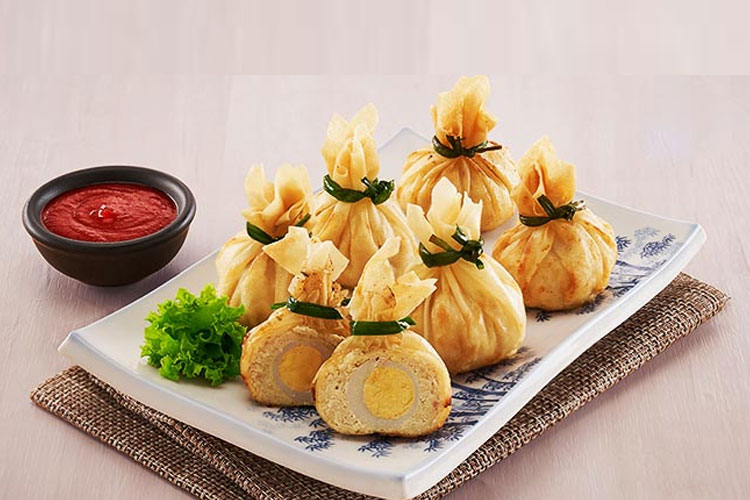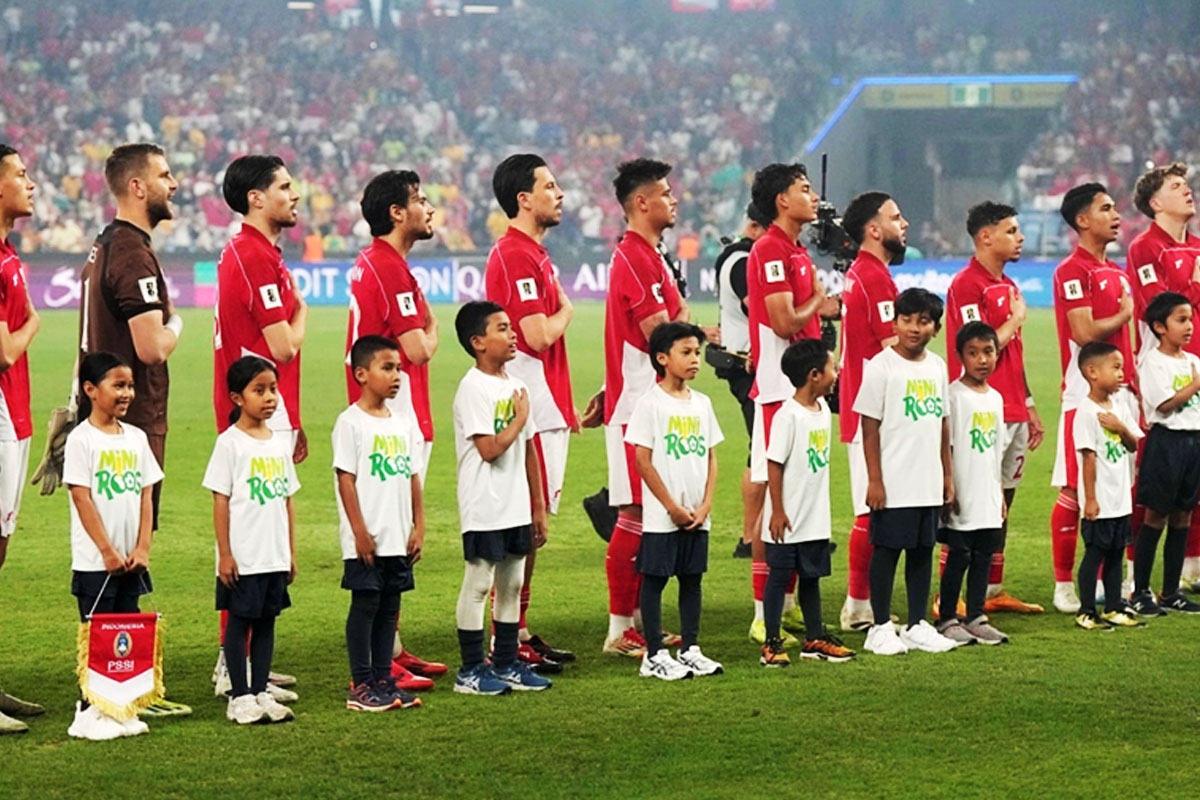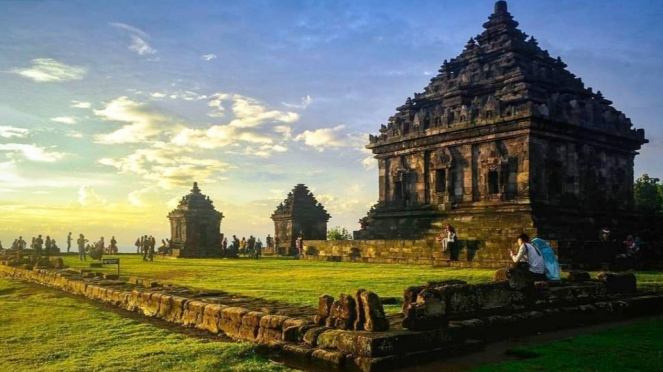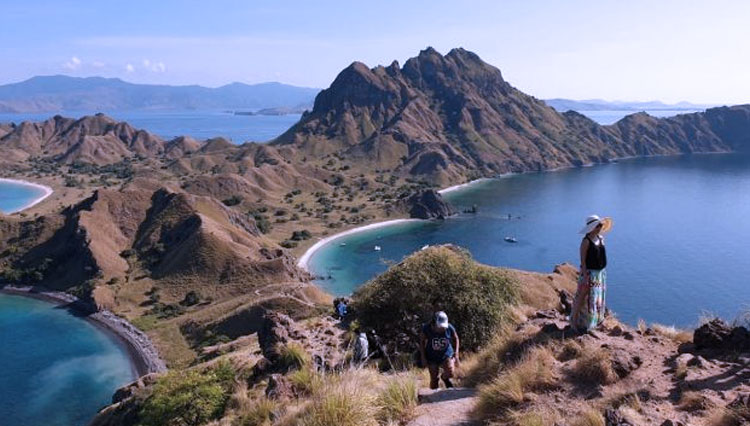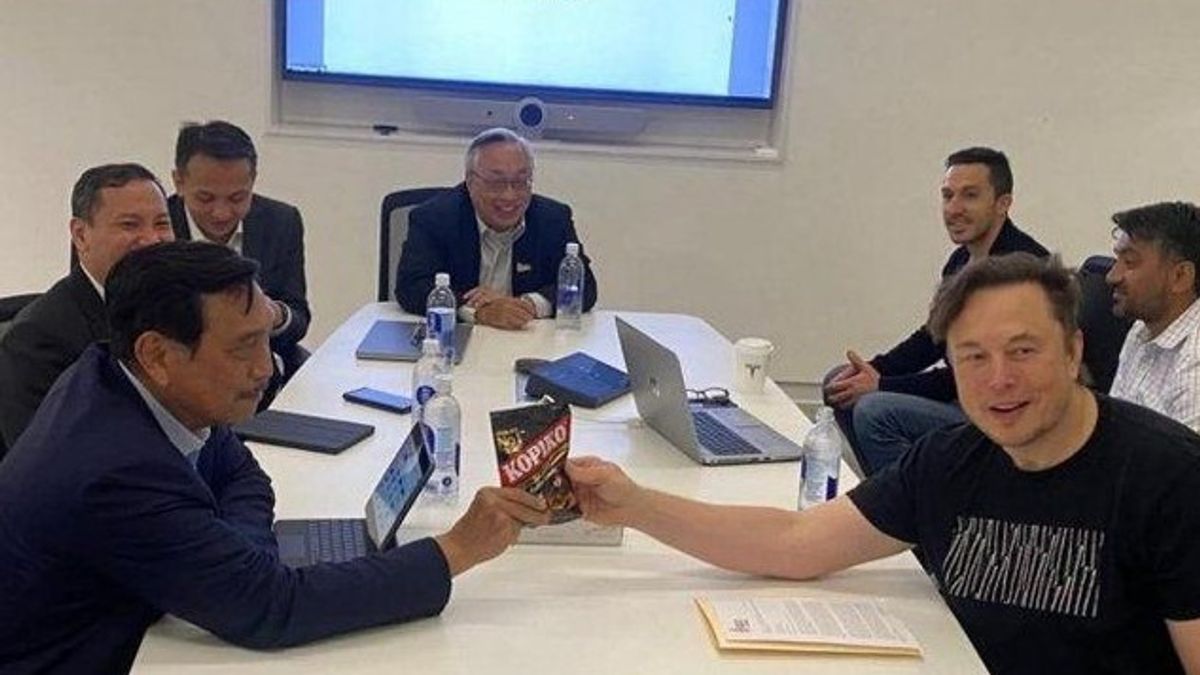UNJ, UTM, and YPKDT Malaysia Work Together for Bean Waste Training
The State University of Jakarta (UNJ) collaborated with the Universiti Teknologi Malaysia (UTM) and the Darul Ta'zim Family Development Foundation (Ypkdt)
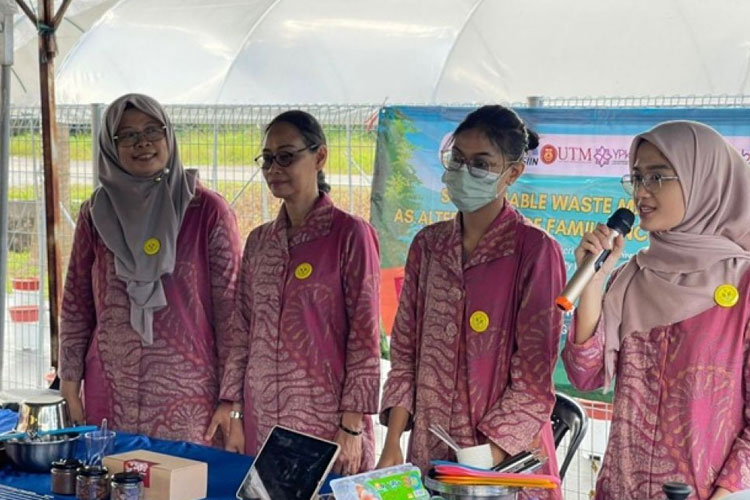
TIMESINDONESIA, JAKARTA – The State University of Jakarta (UNJ) collaborated with the Universiti Teknologi Malaysia (UTM) and the Darul Ta'zim Family Development Foundation (Ypkdt) Single Mother Community in an International Collaborative Community Service themed "Sustainable Waste Management as an Alternative for Family Income Generation" on Saturday, August 5th, 2023, at the Desa Melayu Raya Community Center, Pekan Nenas, Pontian, Johor Baru, Malaysia.
One of the themes presented was "Training on Cookies From Waste Cocoa Testa" with Dr. Dalia Sukmawati, M.Sc. (Chairperson) leading a team of 6 lecturers from the State University of Jakarta, namely: Biology Program Lecturers: drh Atin Supiyani, M.Sc.; Dr. Reni Indrayanti, M.Sc.; Master's Program in Biology Education Lecturer at UNJ: Dr. Supriyatin, M.Sc.; Culinary Education Lecturer at UNJ: Dr. Guspri Devi Artanti, M.Sc., and Dr. Ruslanti, Dr Mutia Delia (Physic Program), Dr Yuyus Kadiman and Sri Rahayu M.Biomed.
Additionally, the international collaborators were Prof. Hesham A. El Enshasy from IBD UTM, Lecturers of the Faculty of Social Sciences and Humanities, UTM Associate Professor Dr. Mohd Fauzi bin Abu, Dr. Noorzana binti Khamis, Dr. Aminudin bin Hehsan, Dr. Juhazren bin Junaidi, and Dr. Salmalina binti Salleh.
This international PKM activity was attended by the Chairman of Kampung Kawasan 12, Pontian, Tuan Haji Adam bin Yusof, the Officer of Pusat Komuniti Desa Melayu Raya, Nor Irmezawan binti Jamaian, the Women's Empowerment of Darul Ta'zim Family Development Foundation, Puan Mislinah Meshpar, and the Sakinah Empowerment of Darul Ta'zim Family Development Foundation, Tuan Haji Afandi bin Tahir. (Figure 2).
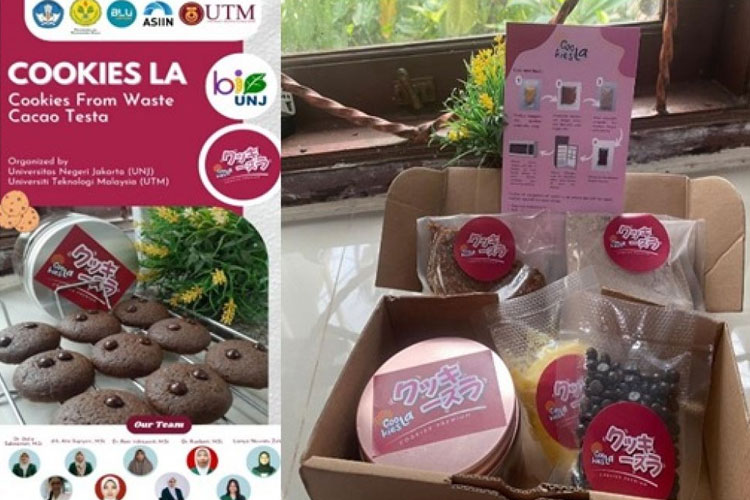
Universiti Teknologi Malaysia (UTM) sent representatives to participate in the training implementation in Pekan Nenas, Pontian. The Project Knowledge Transfer Program (KTP) was led by PM. Dr. Mohd. Fauzi bin Abu@Hussin, a lecturer from the Faculty of Social Sciences and Humanities at UTM, along with Dr. Noorzana binti Khamis and other lecturers from the same faculty, as well as students and the academic community of UTM. The topic theme presented was "Training on The Utilization Of Cocoa (Theobroma Cacao L.) Seed Waste Fermentation As an Alternative for Enhancing the Community's Economic and Nutritional Well-being." The presented as speakers and organizers from UNJ were Dr. Dalia Sukmawati, M.Si (Biology), and Dr. Supriyatin, M.Si (Biology Education), as well as students from the Biology Study Program (Dasilva Azka N) and the Culinary Education Study Program (Lamya Naura).
Indonesia is one of the largest cocoa producing countries in the world which ranks 5th after Ivory Coast, Ghana, Ecuador, and Nigeria with cocoa bean production reaching 720,661 tons in 2020 (BPS, 2021). However, even though Indonesia is one of the largest cocoa producing countries in the world. Cocoa production in Indonesia produces nearly 50% cocoa waste. After the roasting stage of chocolate manufacture, the cocoa shell (CS) is extracted from the cocoa beans. It makes up between 12 and 20 percent of the seeds in cocoa, and its yearly production is thought to be roughly 600,000 tons.
The CS has traditionally been used as an organic matter to replenish soil nutrients and control weeds as well as a fuel source in cocoa processing operations. Recent studies, however, have suggested additional uses for CS, such as its usage as animal feed, an adsorbent, or a biofiltration agent in purifying wastewater from the food sector (Benítez et al., 2023). CS can used as a food products. The cocoa shell (CS) not only offers sensory benefits but also contributes to their nutritional profile. The high dietary fiber content and bioactive compounds in CS make it a promising ingredient for the development of functional foods. One of the applications is the production of cookies kits.
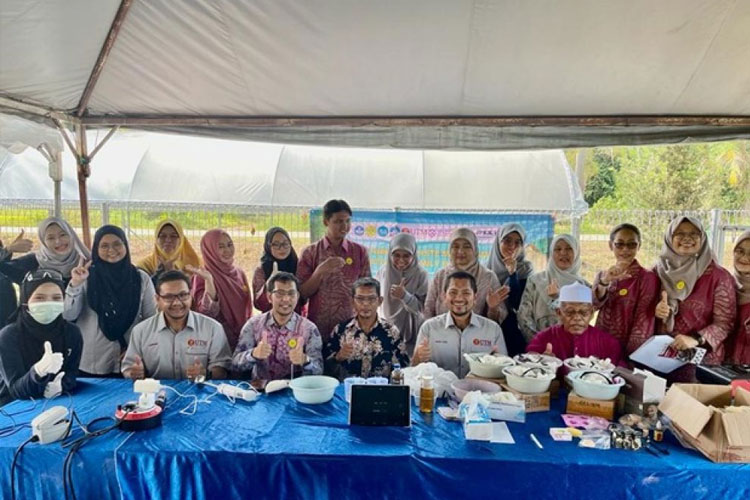
This training is conducted to establish collaboration between the Faculty of Mathematics and Natural Sciences, Universitas Negeri Jakarta and the Faculty of Sciences & Humanities, Universiti Teknologi Malaysia. In addition, this international PKM activity aims to provide training to the community, especially the single mother community (Figure 4).
The theme of this topic is Training On The Use Of Seed Waste From Cocoa (Theobroma Cacao L.) Fermentation As An Alternative For Increasing Community's Income And Nutrition. The material presentation is given by Dr. Dalia Sukmawati, M.Si and Dr. Supriyatin, M.Si, This is followed by a demonstration by the team of lecturers and students, which is attended by the community directly, providing a cookie kit along with the necessary tools for the process of making fiber-rich and antioxidant-rich cookies, using fermented cocoa bean shells.
This training is conducted by providing knowledge about cocoa (Theobroma cocoa L) and how to utilize cocoa shell as one of the ingredients in making cookies known as the cookies kit. The training results are expected to serve as one of the sources of income for the Single Mother Community under the umbrella of the Darul Ta'zim Family Development Foundation (Ypkdt) Single Mother Community.
This activity marks the beginning of an international collaboration between UNJ and UTM, which has been initiated since 2018. The collaboration has been conducted together with Prof. Dr. Hesham Ali El-Enshasy (Director of the Institute of Bioproduct Development, UTM). One of the successful collaborations is the joint publication of research papers and chapter books until 2023, with all 60 publications.
The collaboration involves Dr. Dalia Sukmawati M.Si and the biology program team, as well as Prof. Muktiningsih Nurjayadi, the dean of FMIPA UNJ. The collaboration will continue to be enhanced in efforts to establish Universitas Negeri Jakarta as a reputable international university in the world. (*)
Apa Reaksi Anda?













